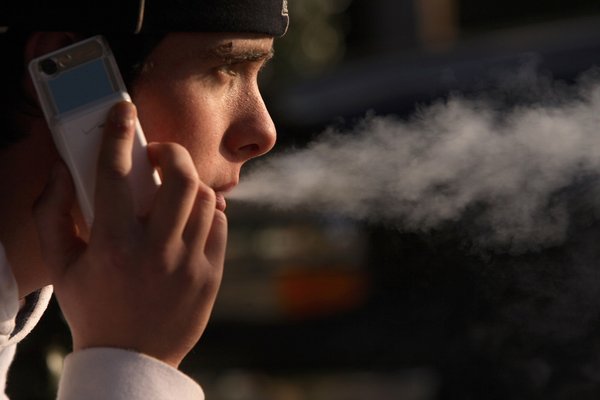Report slams child labor in tobacco fields
By Mariano Castillo, CNN
(CNN) — Children can’t light up, but there are some who suffer the effects of nicotine exposure as they labor in U.S. tobacco fields.
There is not an exact figure for how many children work in America’s tobacco fields, but Human Rights Watch interviewed nearly 150 for a new report on the dangers these workers face.
“I would barely eat anything because I wouldn’t get hungry,” one child worker, Elena G., 13, told the human rights group. “Sometimes I felt like I needed to throw up. … I felt like I was going to faint. I would stop and just hold myself up with the tobacco plant.”
Nearly 75% of the children interviewed reported similar symptoms — nausea, vomiting, loss of appetite, headaches, dizziness, irritation and difficulty breathing. These are symptoms of acute nicotine poisoning, Human Rights Watch said.
And nicotine is not the only danger.
Exposure to pesticides from adjacent fields and accidents with sharp tools are also common, the report said.
“Once they sprayed where we were working. We were cutting the flower and the spray was right next to us in the part of the fields we had just finished working in. I couldn’t breathe,” Jocelyn R., 17, told HRW. “I started sneezing a lot. The chemicals would come over to us.”
Altria, one of the biggest cigarette makers, does not employ its own farmers but maintains strict standards on the contractors it buys tobacco from, company spokesman Jeff Caldwell said.
His company’s view is not that the HRW report is critical of the tobacco industry, but that it asks for cooperation with various interests to protect the safety of workers, especially minors, he said.
“Our tobacco companies do not condone the unlawful employment or exploitation of farm workers, especially those under the age of 18,” Caldwell said.
Altria requires that its growers follow certain guidelines that specifically include best practices for labor management when it comes to harvesting tobacco. Issues such as avoiding acute nicotine poisoning and heat stress are addressed in the guidelines, he said.
U.S. tobacco companies intend to work together to further discuss the topics in the report, he said.
The study focused on four tobacco-growing states: North Carolina, Kentucky, Tennessee and Virginia.
Children can legally work in the tobacco fields, and some as young as 11 and 12 years old do. These children primarily work during the summer to help support their families. The majority of them were Hispanic children of immigrants who lived in nearby towns, the report said.
“As the school year ends, children are heading into the tobacco fields, where they can’t avoid being exposed to dangerous nicotine, without smoking a single cigarette,” Margaret Wurth, a co-author of the report, said in a news release. “It’s no surprise the children exposed to poisons in the tobacco fields are getting sick.”
Many of the children the group spoke with reported working long hours without overtime pay or enough breaks, HRW said.
One of the recommendations of the report is that no one under 18 be allowed to work in tobacco fields, due to the risks that such exposure can bring.
http://www.cnn.com/2014/05/14/us/hrw-children-tobacco-workers-report/

